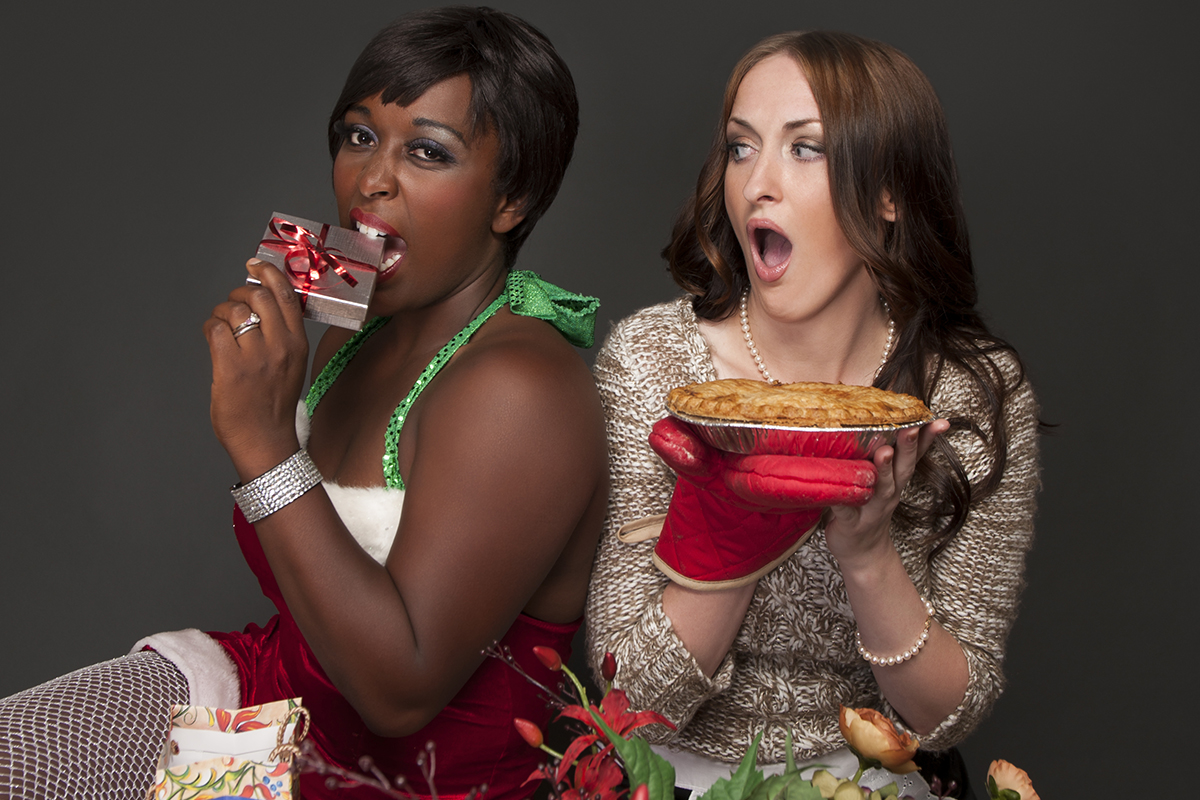Tips to get you and your loved ones through the holiday season
Feature Photos by Cedric Terrell
It’s already that time: We’re trying out our best recipes for Thanksgiving dinner, picking out the ideal Christmas tree, or buying candles for our menorah or kinara. These festivities and traditions entail considerable pre-planning and, in turn, generate a lot of questions— especially when friends, family, and significant others are involved.
The usual questions and issues surrounding holiday preparations can become a little more complicated, especially, when you’re LGBTQ. That’s why we went directly to the LGBTQ etiquette expert himself, Steven Petrow, to provide advice on the dos and don’ts surrounding various activities during this festive season. All of the helpful tips appearing here are excerpted from Steven Petrow’s Complete Gay & Lesbian Manners for Every Occasion: The Definitive Guide to LGBT Life (Workman, 2011).
Now, let’s begin planning for the holiday season.
Where to Spend the Holidays
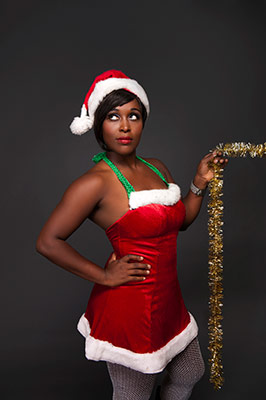
Disputes about the holidays are common among couples. First of all, who says couples have to be together every holiday? Many LGBTQ couples spend them apart. A gay couple I know who have been together for 10 years now have actually never spent Christmas together; they simply make sure to celebrate the holiday either before or on New Year’s.
Others play the game of trading off: Hanukkah or Christmas this year with her family and next year with your friends. Or perhaps there’s another solution, especially if you can’t agree on her way or yours. How about finding something you both want to do? Hawaii? Stay home? Start your own family traditions and invite others to join you?
Finally, plan ahead: It’s better to start having this conversation early in the fall so that you have time to figure things out.
Coming Out During the Holidays and Bunking Together at Mom’s House
Start with these questions: What will be the most comfortable way to handle your coming out for your girlfriend (or boyfriend)? The answer: not holding her hostage or witness to the conversation with your parents. What will be easiest on the parents when you tell them your double good news? The answer: not having someone they don’t know standing or sitting by as they process your news.
Now, what to do? Although I’d usually suggest having the “Mom and Dad, I’m gay” talk in person, you can do that on the phone or Skype with them right away and still give them at least a couple of weeks to absorb what you’ve told them (which may or may not be news to them, of course). With any luck, they’ll ask you if there’s anyone special in your life right now, and then you get to tell them all about your girlfriend. In this Currier and Ives world, they’ll tell you that they can’t wait to meet this woman who makes your heart go pitter-pat and that they hope you’ll be comfortable sharing your old bedroom, even if Dad throws in, “You know, that mattress is kind of lumpy.”
Of course, not all coming-out talks go that way, and you may run into some obstacles along the way. Just remember that even though your parents may have known for years that you’re gay, knowing it in your heart is different from hearing it from your child. They’ll likely need time to process—time that you really need to give them. So cut them a little slack and give them time to deal.
As for your sleeping arrangements: In any situation when you’re the guest, you’ve got to play by the house rules. If your folks aren’t comfortable with their daughter and her girlfriend sleeping together under their roof, that’s their prerogative, as unfair as it may be. You may not like it, and, in fact, you may decide as a result not to stay there (or even visit). But, again, it’s so much easier for everyone to have these conversations sooner than later—and certainly before you’re about to head upstairs to bed.
Talk About It: By the way, I’ve seen the Gay & Lesbian Alliance Against Defamation’s Thanksgiving greeting, which called for making Aunt Betty feel “awkward” by coming out on Turkey Day. As I’ve said, there are good times and not-so-good times to have this conversation, and if you think it will be productive, I’m all for it.
Holiday Cards
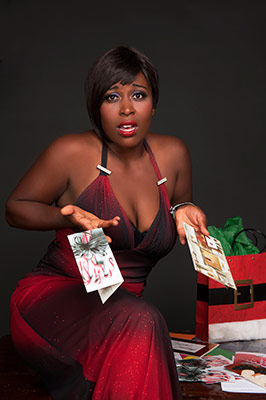
Although losing out to e-cards, millions of holiday cards are sold every year in North America. Although many of these cards have pre-printed sentiments in them, it’s more personal to add some original words of your own.
When it comes to the end-of-year holidays, it’s easiest to choose cards that have winter imagery—or a family photograph—and are appropriate for anyone of any faith (or no faith). If you’re Christian or Jewish, you might want to buy two different kinds of cards: a “Season’s Greetings” or “Happy New Year” set and others with religious imagery or verbiage that say “Merry Christmas” or “Happy Hanukkah.” The former can be sent to anyone on your list, including those of all faiths, while the latter can be reserved for those who celebrate the specific holiday featured on the card. After all, why take a chance on offending anyone when the idea is to make a warm gesture?
As for those e-cards, Paperless Post tops my list for quality and personalization. Check them out.
Holiday Photo Cards as an LGBTQ Couple (With a Cat)
Most holiday photo cards feature kids (“Aren’t they adorable!”) or vacation destinations (“Look at how fabulous we are!”) as key elements. But there are limits: It’s actually pretty rare that couples alone—straight or gay—pose for their close-ups without a supporting player. Since equality is all about parity, I’d say do go ahead with your close-up—just don’t forget your cat. (“Isn’t she beautiful?”)
One last note: If you’re not already out, this is a quietly effective way to do so. Imagine the photo: two wives or two husbands and their cat, in front of the fireplace.
Holiday Newsletters
While there are those who love reading of friends’ and relatives’ doings in holiday newsletters, these annual updates are also easy to mock. One lesbian reports that her aunt exploits every member of her family in her yearly summaries: “Her Christmas updates have included one son’s painful divorce and another’s inability to get his wife pregnant. She violates everyone’s privacy.”
If these letters are part of your family tradition, keep these dos and don’ts in mind:
Don’t start off with “Dear All.” Write a personalized salutation at the top of each one.
Keep them short. Whether on paper or via e-mail, a half to a full page is sufficient. Really, it is.
Send them judiciously. Don’t mail out to everyone you know, just to those you think will actually care about your news.
Don’t brag. Granted, this is a major reason people write them, but try your best to keep it in check.
Don’t be a downer. Too much bad news (illness, war, the economy) can ruin the best of holidays.
Respect your family’s privacy. Always ask for permission before revealing others’ personal affairs.
Include photos. Especially nice are snaps of important events like vacations, weddings, anniversaries, and other milestones.
Many of these holiday updates are now sent by e-mail, often with attached photos. If that’s convenient for your recipients, then go ahead and save yourself the cost of printing and postage.
Being a Good Dinner Host
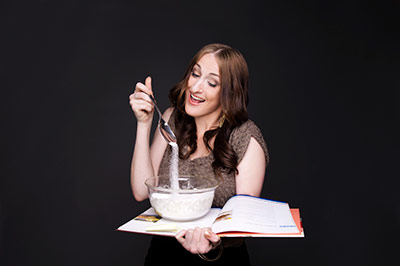 Get your home up to snuff. The house should be clean and the table, set. And, you should be ready to greet your friends and family when the doorbell rings. Plan the evening so that you can enjoy your friends and family. Too many hosts “work” their parties without stopping to really participate.
Get your home up to snuff. The house should be clean and the table, set. And, you should be ready to greet your friends and family when the doorbell rings. Plan the evening so that you can enjoy your friends and family. Too many hosts “work” their parties without stopping to really participate.
Make sure the kitchen is under control. Some hosts prefer to have all the cooking done ahead of time so they can pour drinks, make introductions, and mingle. Others feel that if you are serving really fresh food, you have to finish your cooking once guests are present—right before sitting down.
Introduce your friends and family to one another. Having taken the time to invite compatible guests, make sure they get to meet one another. In parties of less than 10, try to introduce each new person to at least one other. If you can’t do that as they arrive, take some time shortly after to circulate and make introductions as necessary.
Ask questions of your guests and listen to what they say. Sometimes, it’s easy to forget that making and deepening connections is the underlying purpose of entertaining, whatever kind of event you’re hosting. Make sure you do that and help others do so, as well.
Know your guests’ preferences. Is someone vegan? On a wheat-free diet? Do your best to accommodate them, without making it too hard on yourself.
Don’t push alcohol on nondrinkers. And don’t out your alcoholic friends or family members to others. If you plan to serve foods prepared with either wine or liqueur, make that known to all your guests—not just to those whom you know to be nondrinkers, as you don’t want to single them out publicly.
Gift Giving
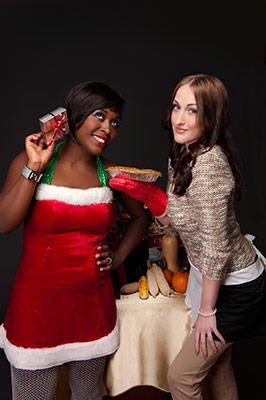 On the surface, giving and receiving gifts at the holidays seems pretty innocuous and cheery, but it can be cause for hurt and disappointment in many families, both in the ones we were born into and in the new ones we form with our friends and partners.
On the surface, giving and receiving gifts at the holidays seems pretty innocuous and cheery, but it can be cause for hurt and disappointment in many families, both in the ones we were born into and in the new ones we form with our friends and partners.
If you’re in a relationship, talk with your partner about your expectations and budget. Some LGBTQ couples decide to do something jointly, such as getting a puppy, purchasing a necessary appliance, or putting down a deposit on a vacation. Others agree to a spending limit or to support a favorite charity.
Then there’s the gift fuss itself: Many love the wrappings and tidings of holiday giving, while others disdain the commercialism. A lesbian therapist explained how she got her family to focus more on the sentiments and less on the materialism. “Instead of store-bought gifts, I suggested that we each make something for one person in the family. We chose lots, and I picked my mom. I wrote her a heartfelt letter about how important she was to me. She loved it. My gay brother, who had picked my dad, compiled a CD of songs that he thought our father would appreciate. It went over really well.”
When you do give a gift, take the time to personalize it. Giving generic presents suggests that the recipient isn’t that important to you or that you couldn’t be bothered to spend time on the effort. For a poetry lover, pick up a collection by W. H. Auden, Audre Lorde, or Mark Doty. If your best friend volunteers at a breast cancer action group, think about making a donation in her name. Does a good friend need something that she wouldn’t (or can’t) buy herself? What about making or baking a gift—or giving the gift of time, perhaps in the form of babysitting or a long-overdue invitation to a one-on-one dinner?

These holiday tips and many more can be found in Steven Petrow’s Complete Gay & Lesbian Manners for Every Occasion: The Definitive Guide to LGBT Life. Visit his website for more information.


